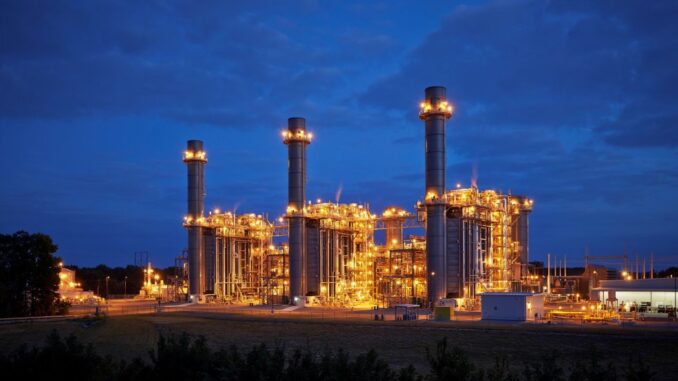
Before pivotal hearings that begin Monday, Duke Energy has made a few small concessions to its plans for a giant fossil fuel buildout in North Carolina, winning over the once-skeptical state-sanctioned ratepayer advocate.
Duke’s proposed settlement with Public Staff and Walmart needs approval from the state’s Utilities Commission to take effect. It comes as dozens of experts plan to appear before the panel to debate the company’s biennial carbon plan, including its controversial bid to invest in 9 new gigawatts of natural gas plants and punt on a key state climate deadline.
The agreement still shows Duke determined to construct five large combined-cycle gas plants in the coming decade, but only three would get a preliminary blessing for now. Public Staff earlier had wanted only one such plant to be considered “reasonable for planning purposes.”
While state law requires Duke to cut its carbon emissions 70% by 2030, in line with scientists’ recommendations for avoiding catastrophic global warming, the agreement stipulates that a pollution cut of that magnitude by decade’s end is “unachievable and presents unacceptable risks to the reliability of the grid.”
Duke also agrees to study the $250 billion Energy Infrastructure Reinvestment Program it had earlier eschewed, though the settlement’s wording seems to reject what experts say is the program’s best use: financing up to 80% of new clean energy projects and remaining debt on retiring coal units with government loans.
Apart from a few other changes around the edges, the settlement is aligned with the plan Duke filed in January. And while the deal means the utility and Public Staff won’t spend time debating each other next week in Raleigh, clean energy groups and other intervenors still have plenty to litigate.
Perhaps most notable, critics say the January blueprint, combined with Duke’s spirited defense of it in hundreds of pages of testimony filed July 1, runs headlong into a new federal rule on coal and gas plants finalized in April.
In effect, the rule forces any new large gas plants to run no more than 40% of the time beginning in 2032. Public Staff, the office of the Attorney General and clean energy groups had urged Duke to reconsider its plan in light of the new regulation, perhaps by replacing some or all of the planned gas with renewables or rolling out new initiatives to reduce electric demand.
Duke is suing to try to overturn the new rule, which is now final. But the company avowed that if the regulation remains, its only option was still to build five new, combined-cycle turbines, even if they only ran at half their potential capacity.
Having placed manual constraints on renewables and battery storage in its computer forecasting program, Duke said in its testimony, “the model is not able to shift this ‘lost’ gas generation to renewable resources.”
Instead, the company asserted it would have to generate more power from its existing gas and coal plants, causing 4 more million tons of carbon pollution in the year 2035, a “likely delay” in 70% pollution cuts to 2036 or later, “and an increase in the total system cost of more than $600 million.”
In its July 1 filing, Duke also brushed aside doubt from Public Staff and clean energy groups that its new gas plants could ultimately run on emissions-free hydrogen fuel, which is not yet commercially viable and many experts say may never be practical.
“Several parties incorrectly assume that the addition of new gas resources will subject customers to the risk of stranded investments,” the company wrote in its testimony, “but fail to consider the critical value of these resources over the planning horizon and lack detailed analysis regarding how such a risk would actually materialize three decades from now.”
The question of timing also still looms large. Though approval of the settlement would foreclose a 2030 compliance date, clean energy advocates still hold out hope that Duke will make deep pollution cuts consistent with climate science and not delay them until late in the next decade.
In fact, the North Carolina Sustainable Energy Association and three groups represented by the Southern Environmental Law Center were so dismayed by Duke’s July 1 testimony that last week they moved for regulators to declare that they wouldn’t approve a plan that violated state or federal law, before the meat of next week’s expert witness hearings begin.
That provoked a blistering countermotion from Duke. The groups, said the utility, “were inexcusably dilatory in filing their motion, and their desperate attempt to introduce legal and procedural complexity into this proceeding at the 11th hour should be stricken.”
The commission denied both motions.
Take the Survey at https://survey.energynewsbeat.com/






